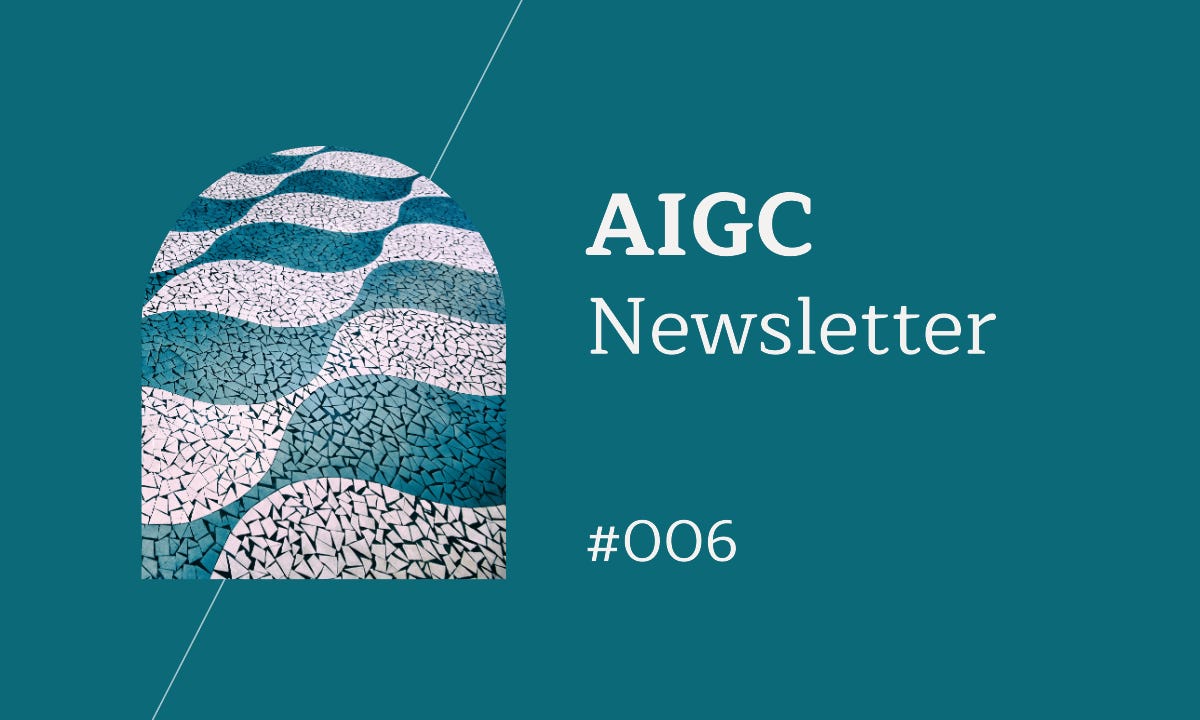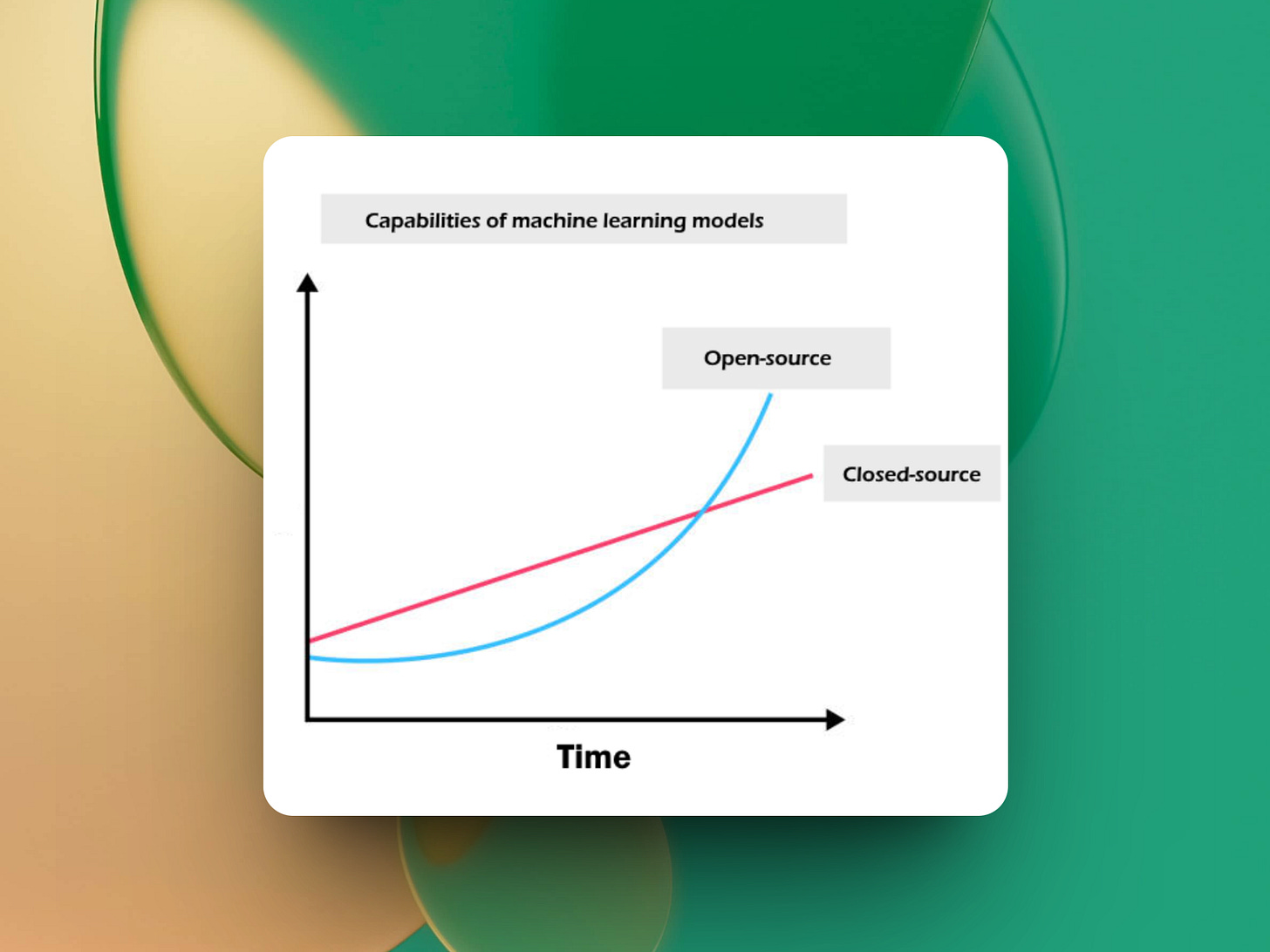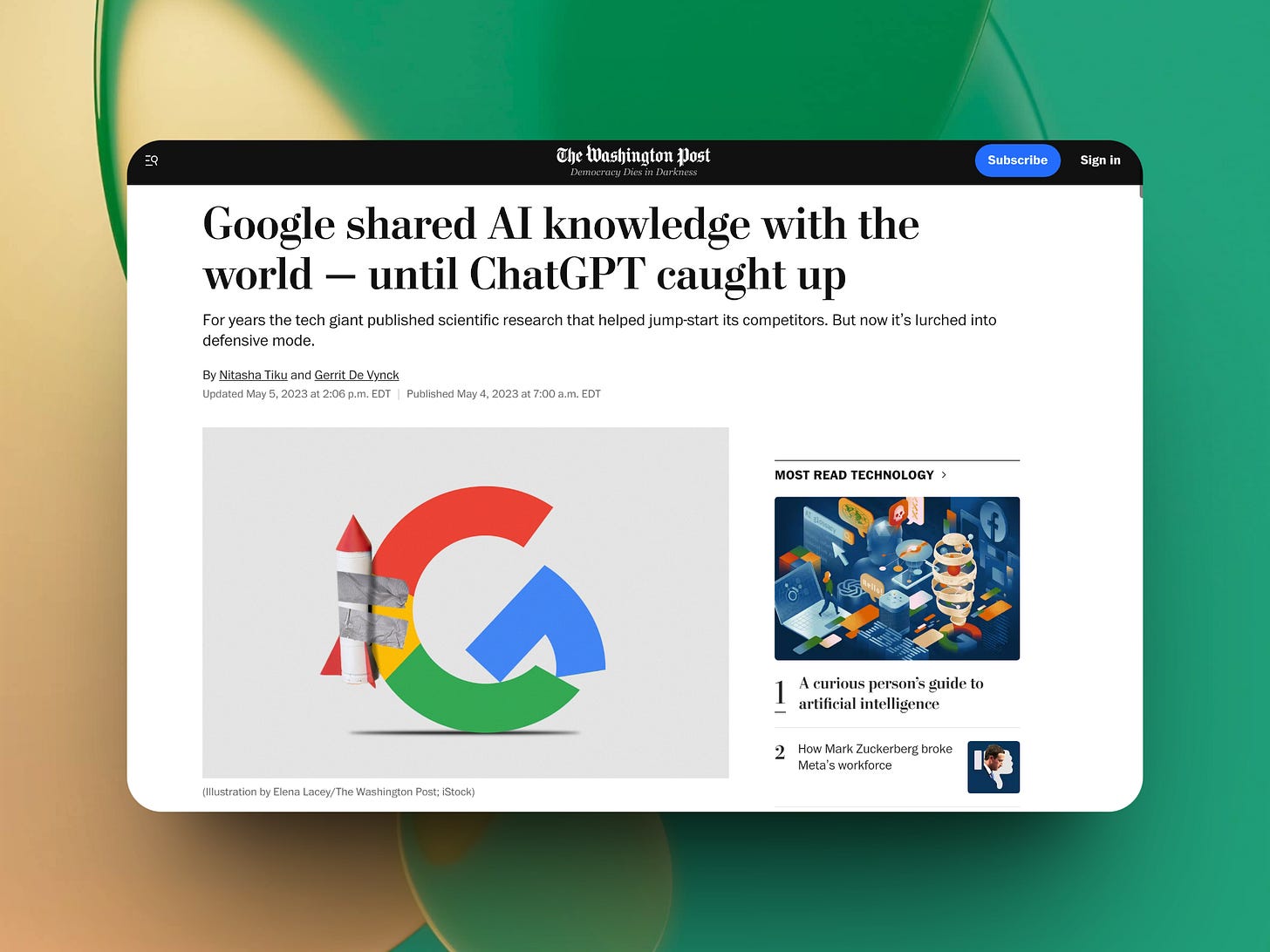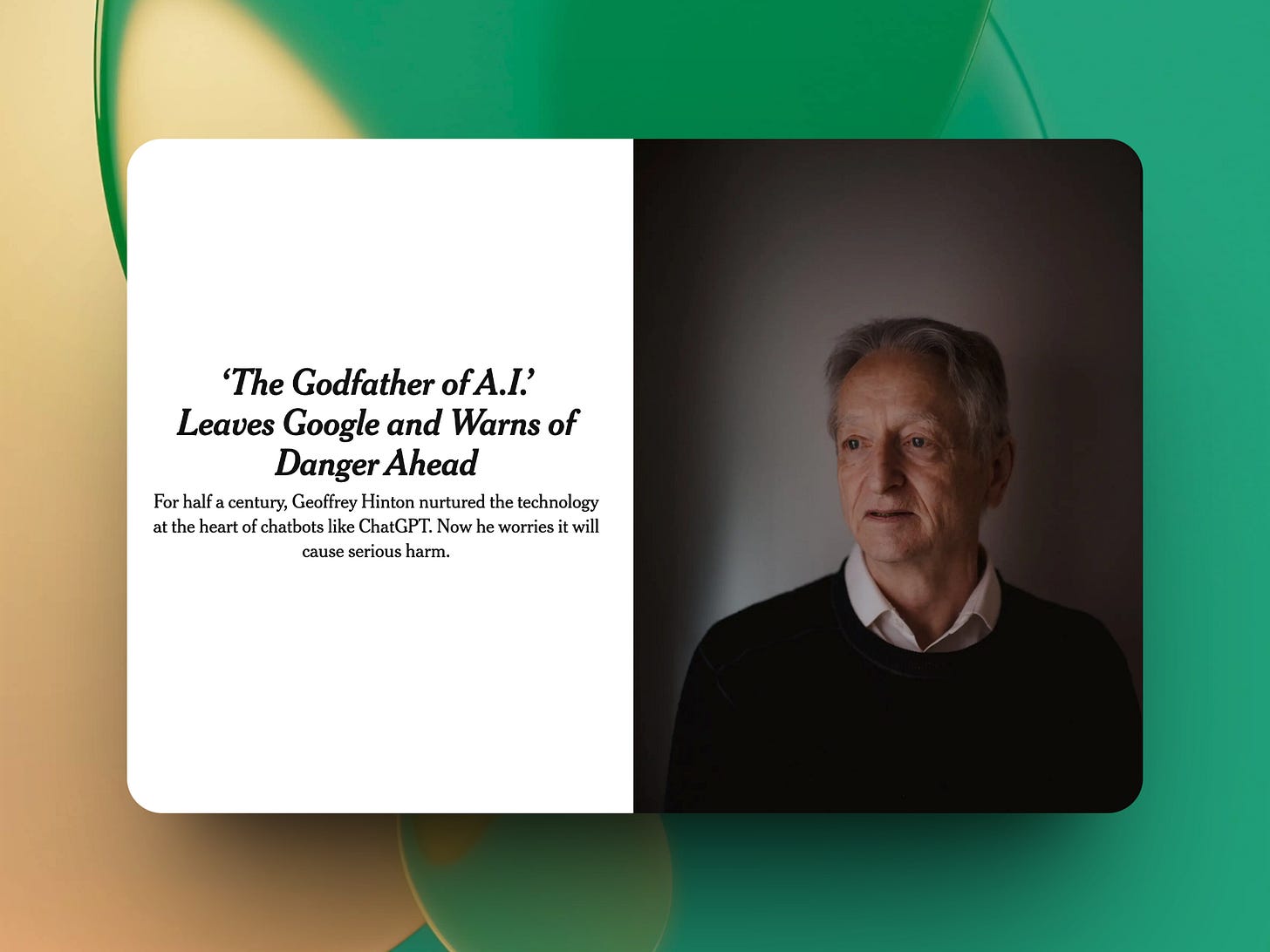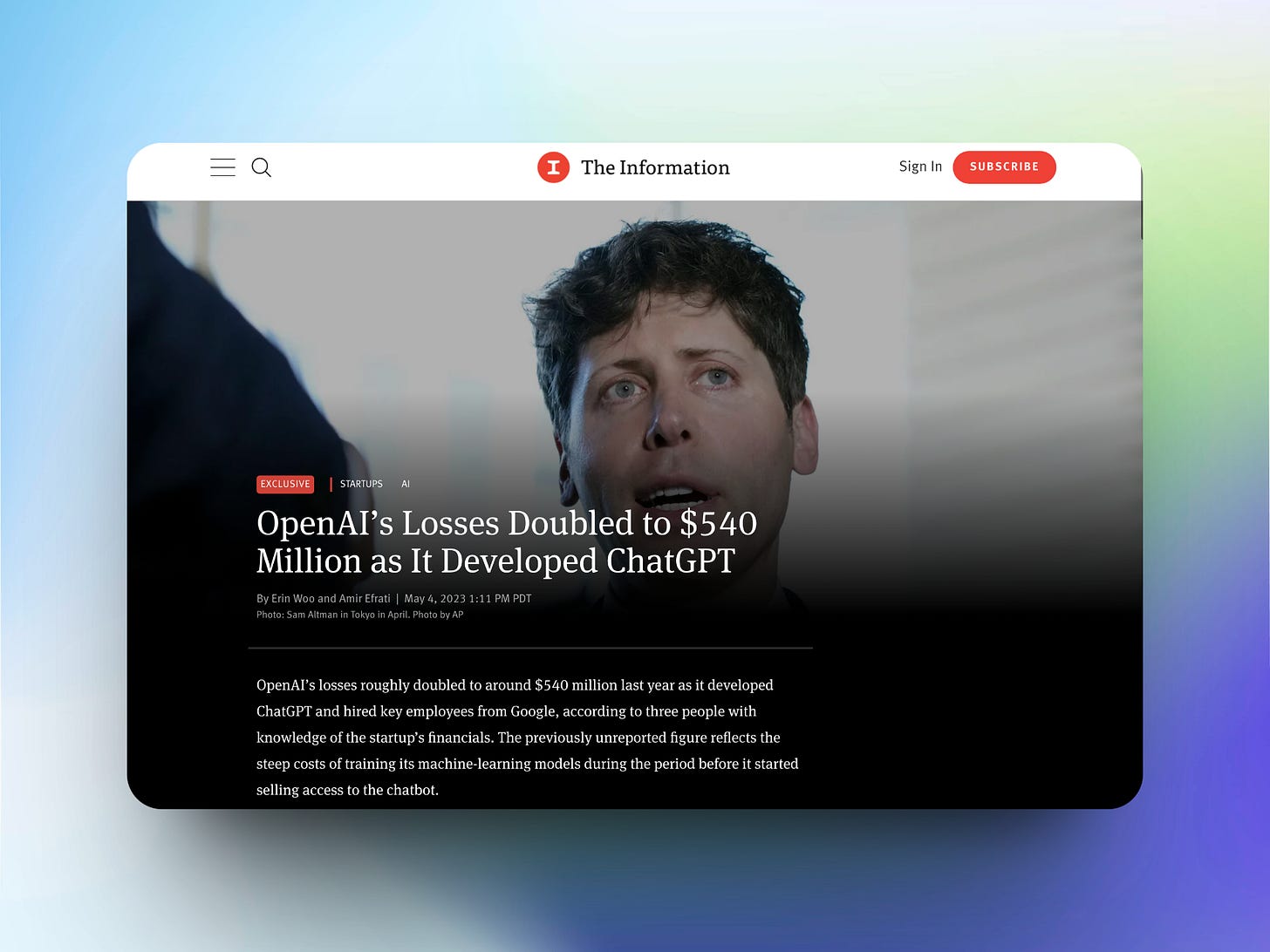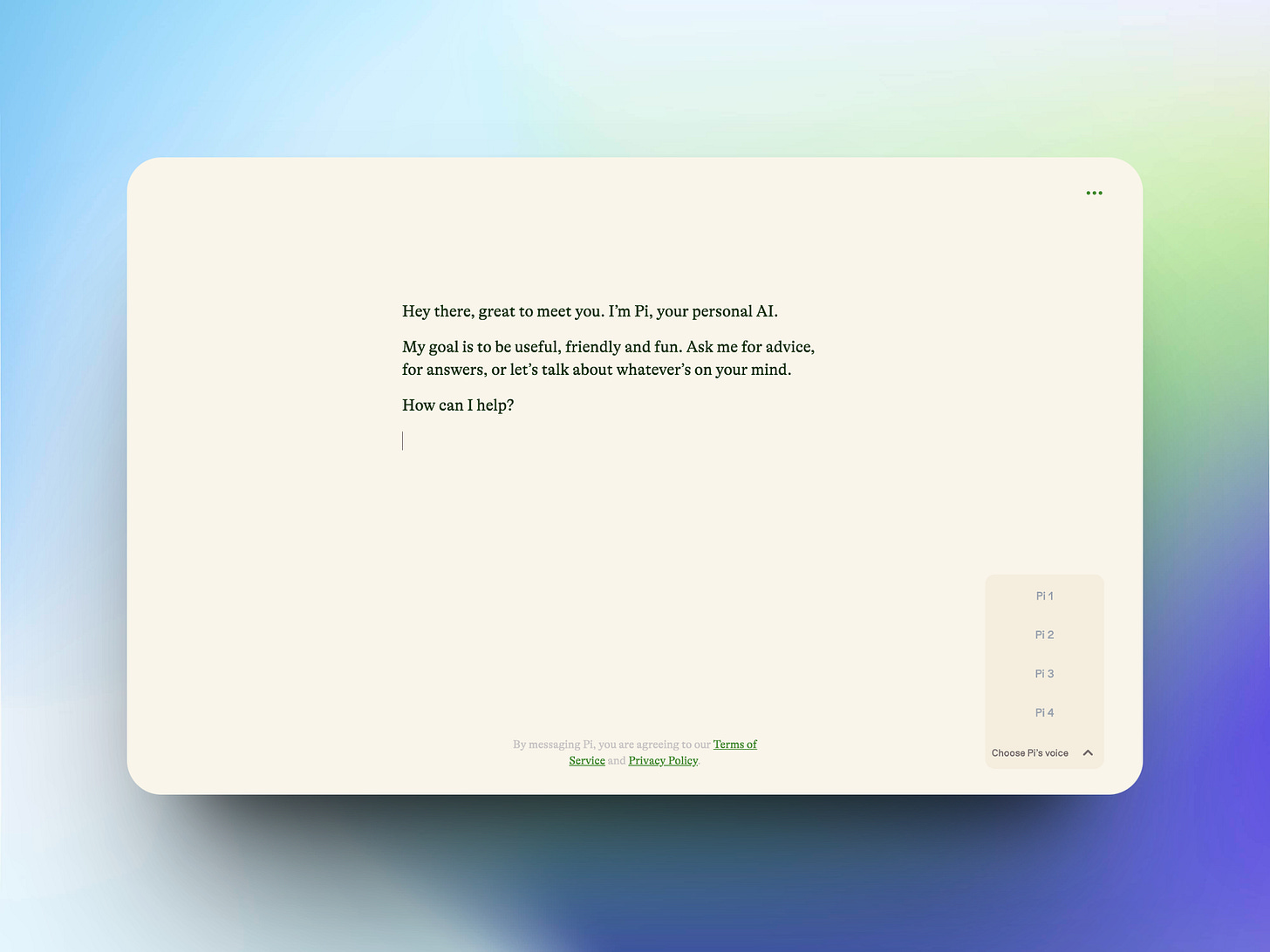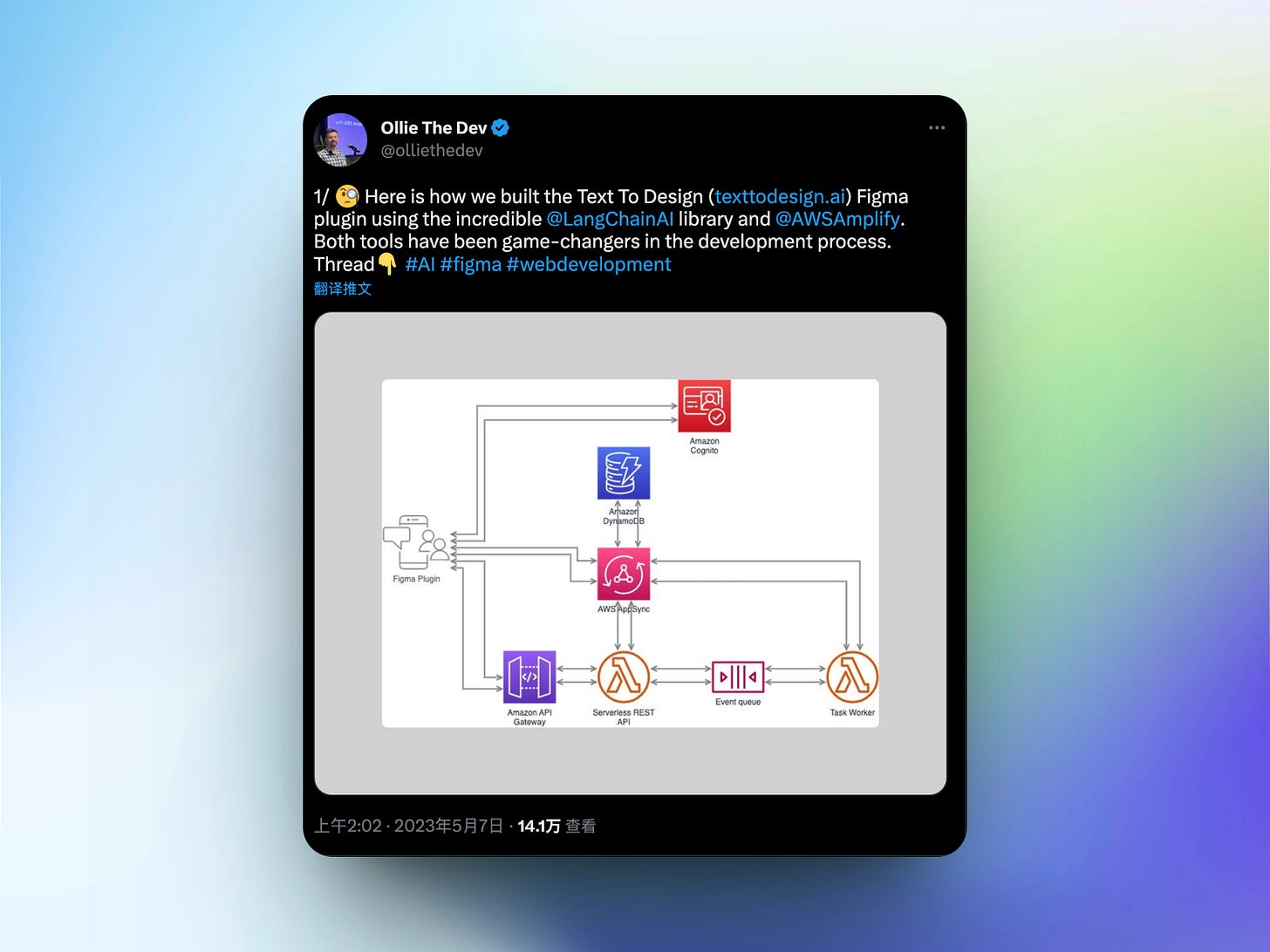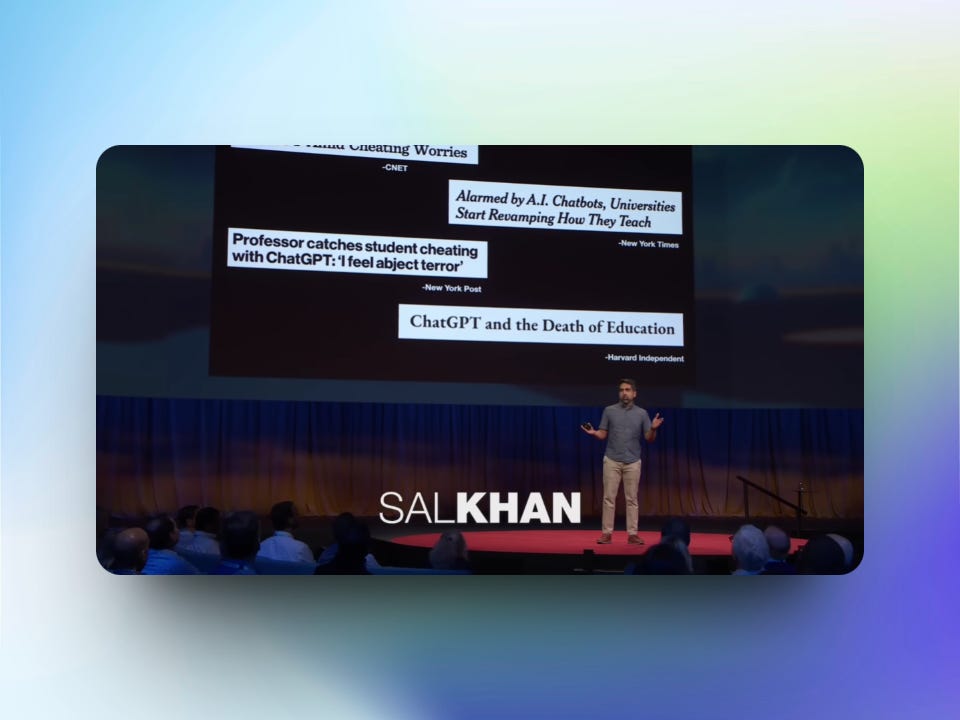Overview:
Google and OpenAI might losing the AI war, and more concerns about AI development raised;
OpenAI's loss of $540 million last year, with much of the investment going into developing ChatGPT;
New chatbot Pi launched, along with some interesting new products;
A summary of Lablab.ai's hackathon projects and some deployment guides for open-source projects;
Khan Academy's insights on the impact and assistance of GPT for teachers and students.
01 /
Google and OpenAI might losing the A.I. war
A leaked document circulated within Google in early April reveals that large corporations struggle to establish a moat in the field of artificial intelligence, facing challenges from open-source communities that offer lower costs and faster iterations.
Since the release of Meta's LLaMA model in February, the community has acquired a robust foundational model, leading to the development of innovative models that can even run on mobile devices.
The models trained at a high cost by companies such as Google and OpenAI haven't demonstrated significant differences from smaller models (with training costs of $100).
Simultaneously, large corporations encounter varying degrees of passive compliance and ethical requirements when developing and promoting closed-source models.
In contrast, users of open-source models typically have no such concerns and appear more liberated and aggressive.
This article has sparked discussions from both sides, with many stating that although they don't agree with the perspective, the article provides valuable reference materials and plays a significant role in promoting the open-source community's influence on AI applications.
02 /
Google adjusts research sharing policy
In February of this year, Jeff Dean, who was then the head of the Google Brain team and is now the chief scientist of Google, Google Research, and Google AI department DeepMind, began asking the team to adjust its strategy for sharing research results.
The change shifted from encouraging researchers to actively share as in universities, to only sharing papers after research results are turned into products. This is viewed as Google transitioning from a confident leader in the field of artificial intelligence to a more cautious defender.
A fact worth mentioning, One of the core technologies of the now-popular ChatGPT is the Transformer deep learning model, which was proposed by Google in 2017.
03 /
A.I. Godfather Geoffrey Hinton leaves Google
After leaving, Hinton gave an interview to The New York Times.
Hinton said that the technology arms race led by tech giants, triggered by ChatGPT in the past few months, is likely to relax regulations on AI (while praising Google's caution in the application of AI technology). AI technologies that are more autonomous and pose a threat to humans will arrive earlier than he previously thought, probably within three to five years.
The results of Hinton and his students, including Ilya Sutskever, who is now the chief scientist of OpenAI, have spawned products such as ChatGPT and Google Bard.
🗞️ Other news
OpenAI has reported a loss of around $540 million in 2022 due to the development of ChatGPT and other factors. (Link)
Nearly 10,000 screenwriters in the United States went on strike, protesting that they demand that unions and employers ensure that they can still get job opportunities under the influence of artificial intelligence. (Link)
New Bing AI is officially launched, providing capabilities such as network browsing, plugins, and life maps based on GPT-4. (Link)
Midjourney V5.1 is launched, with improved short text generation capabilities and more personalized effects.(Link)
Salesforce announced that it will embed native AI experiences in Slack with SlackGPT. (Link)
OpenAI has issued the second batch of ChatGPT plugins, including domains, recipes, real estate, and investment. (Link)
Nvidia has released multiple research results, including a method for simulating the physical movement of tens of thousands of hairs and other objects in real time. (Link)
After acknowledging that ChatGPT has begun to damage its revenue, the stock of online education company Chegg has fallen as much as 40%, and other education companies such as Duolingo and Pearson have also been affected. (Link)
Amazon is integrating LLM capabilities into Alexa. (Link)
Poe supports subscription through the web to provide GPT-4 and Claude+ usage. (Link)
IBM pauses hiring for back-office jobs that AI could kill. (Link)
Intercom announced the launch of a GPT-4-based customer service robot, which is now available on a waiting list. (Link)
🛠️ Products and tools
HeyPi, a chatbot product released by Inflection AI, provides more personalized and emotionally responsive conversations. (Link)
Opus Clip is a tool that can automatically extract character and other subject content from long videos and generate short videos. (Link)
AudioPen records and returns summary text. (Link)
AskPaper summarizes research papers and then chats with them. (Link)
Quizgecko converts any text, webpage, YouTube video, or document into a quiz. (Link)
LLM.report visualizes API usage. (Link)
Make-A-Video Stable Diffusion JAx is an open-source model for text-to-video. (Link)
Bark is a text-to-speech model. (Link)
TTSMAKER is a text-to-speech service. (Link)
☝🏼 Guides and best practices
Text to Design plug-in developers share how to use LangChain and AWS Amplify to build AI-driven text-to-design services. (Link)
AI Tools, an index site that collects more than 1400 AI products. (Link)
A lengthy article: The development history of LLM. (Link)
Netizen @xinqiu_bot summarizes the technical principles and potential issues behind popular projects such as local deployment and automated operation of LLMs. (Link)
Deploying nanoGPT locally to train literary works. (Link)
Stable Diffusion model recommendations. (Link)
AI technology tutorials launched by Lablab.ai, including machine learning, deep learning, LLM, GenAI, and NLP, etc. (Link)
A list of 400+ hackathon projects by Lablab.ai compiled by netizens. (Link)
The language model history behind ChatGPT. (Link)
Chinese mainland AI painting tutorial.
🎓 Courses, Lectures, and Papers
Sal Khan on the impact of artificial intelligence on students and teachers, and practices at Khan Academy (link)
GeneFace++: Generalized and Stable Real-Time Audio-Driven 3D Talking Face Generation (link)
Geoffrey Hinton discusses the "existential threat" of artificial intelligence in a live lecture (link)
Harvard University CS50 Introduction to Computer Science course (link)
GPTutor, a code explanation programming tool based on ChatGPT (paper)
Shap-E, a 3D image generation model (paper)
💡 Misc.
Photo texture of "Qingming Shanghe Tu" created using MultiDiffusion (link)
🎨 Gallery
deep space megastructure space station, outter space, vast expanses, unreal engine 5, octane render, volumetric lighting, muted tone, bauhaus style. noir. --c 15 --ar 8:5 --v 5.1
(fin)


